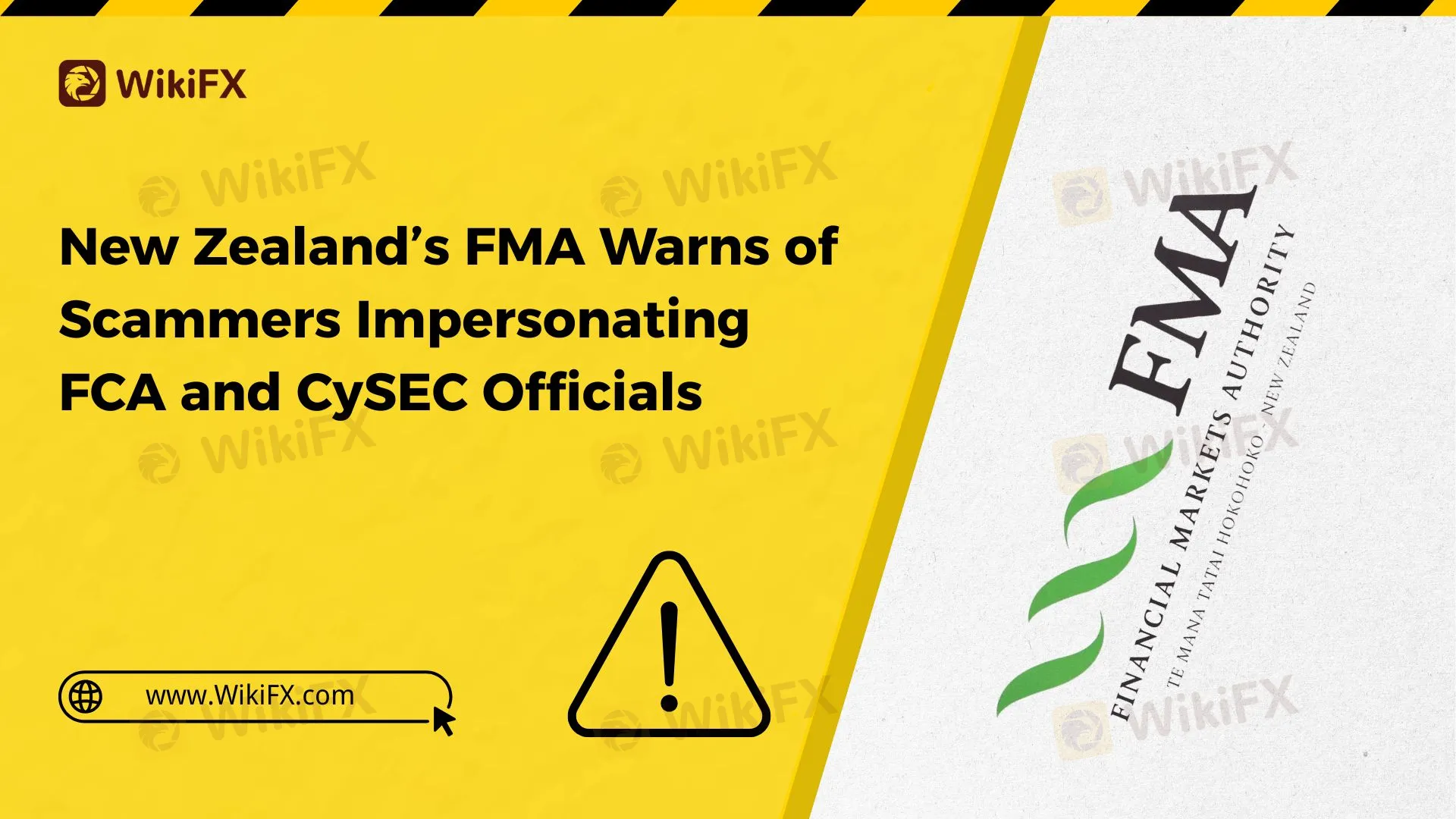简体中文
繁體中文
English
Pусский
日本語
ภาษาไทย
Tiếng Việt
Bahasa Indonesia
Español
हिन्दी
Filippiiniläinen
Français
Deutsch
Português
Türkçe
한국어
العربية
New Zealand’s FMA Warns of Scammers Impersonating FCA and CySEC Officials
Abstract:New Zealand’s FMA warns that scammers are impersonating regulators like the FCA and CySEC to lure investors through fake investment groups on chat apps.

New Zealands Financial Markets Authority (FMA) has raised concerns about a growing wave of investment scams spreading through chat platforms. The regulator revealed that it is receiving a rising number of complaints from individuals who were added to online investment groups after being approached via unsolicited messages.
These scams often begin with messages sent through platforms like WhatsApp, Telegram, Facebook Messenger, and Instagram. Victims are typically invited to join groups that appear to offer investment tips or education, but are, in reality, run by fraudsters. Once inside, theyre presented with attractive—but fake—investment opportunities.
According to the FMA, scammers are now going a step further: impersonating representatives from major financial regulators, including the UKs Financial Conduct Authority (FCA) and the Cyprus Securities and Exchange Commission (CySEC). By misusing the names of respected regulatory agencies, these scammers are attempting to build false credibility and lure more victims.
In some cases, individuals who had already fallen prey to scams were later contacted by fraudsters pretending to be from the FCA or CySEC, offering to “recover lost funds” for a fee. These so-called recovery scams are increasingly common and add a second layer of financial harm.
The FMA stressed: “Any unsolicited contact about investments—especially from someone claiming to represent a regulator—should be treated with extreme caution.” They urge the public not to trust unknown individuals online, no matter how professional their profiles or documentation may appear.
This issue is not limited to New Zealand. Australian regulators have issued similar warnings, noting that investment scams—particularly those involving cryptocurrency or forex—have caused hundreds of millions in losses. Other countries, such as Vietnam and Russia, have even taken steps to restrict access to platforms like Telegram over their failure to curb scam activity.
To protect yourself, always verify a company‘s legitimacy before engaging. Check their regulatory status through official sources—or use tools like WikiFX to confirm a broker’s credentials and avoid falling into the trap.
Disclaimer:
The views in this article only represent the author's personal views, and do not constitute investment advice on this platform. This platform does not guarantee the accuracy, completeness and timeliness of the information in the article, and will not be liable for any loss caused by the use of or reliance on the information in the article.
Read more

FCA Issues New Warnings Against Clone and Unauthorised Firms
The UK’s Financial Conduct Authority has flagged multiple scam websites, including theaccessfunds.com—a clone of a legitimate JPMorgan fund—and several unlicensed crypto and forex platforms. These firms operate without proper authorization and often impersonate regulated entities to mislead investors.

Is Your Money Safe with Libra Markets? Check Out Fast!
n this exposure episode, we will take you through the heinous game played by Libra Markets, an unregulated forex broker. Take a look at how people are facing issues regarding withdrawals.

U.S. Seizes $225M in Crypto Tied to Massive Scam Operation
U.S. authorities seized $225 million in crypto tied to large-scale scams, aiming to return funds to victims of crypto trading fraud.

No Regulation, Revoked Licence: Is Tradehall Safe to Use?
In the fast-growing world of online trading, safety and regulation must always come first. Traders need to choose brokers that are properly licensed and follow the rules. Sadly, not all brokers meet these standards, and Tradehall is a clear example of this.
WikiFX Broker
Latest News
FXGT.com Trading Platform Review 2025
Saxo Bank Broker Offices: Full Validation Guide 2025
Dukascopy Enhances Forex Trading Platform with 303 New Instruments
From Wall Street to Web3: Coinbase and Others Eye Stock Tokenization
Global Stablecoin Regulation Enters New Phase as U.S. Senate Approves Landmark Bill
Interview with ATFX Latin America Leader: Rebuilding Trust in the Forex Industry
FXTM Launches New Client Promotion in Malaysia
MetaTrader Support Ending July 2025: Update Now or Risk Losing Access
HYCM Broker Review 2025: A Comprehensive Overview
WikiFX’s Complimentary Protection Services Aim to Safeguard Investors' Legal Rights and Interests
Currency Calculator


